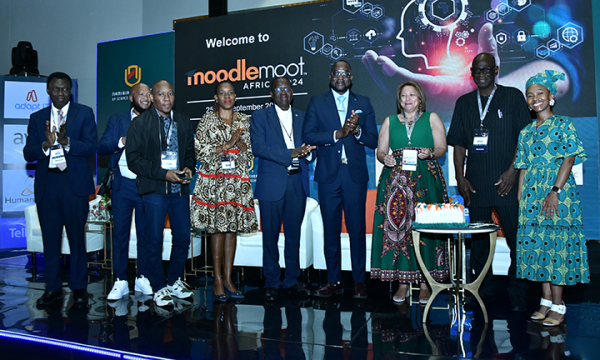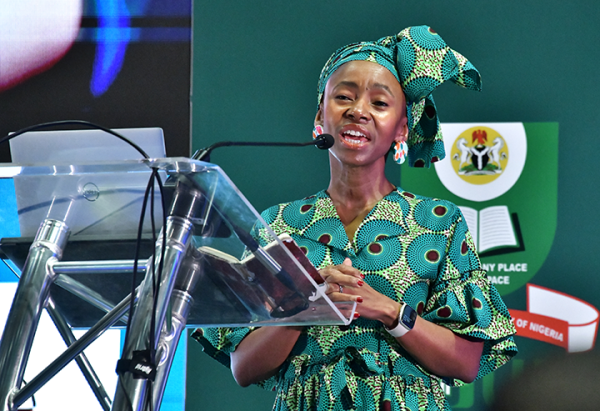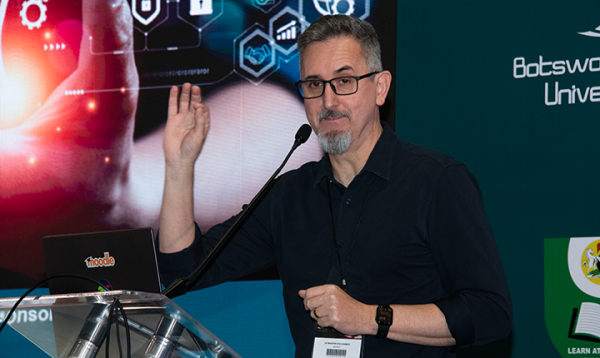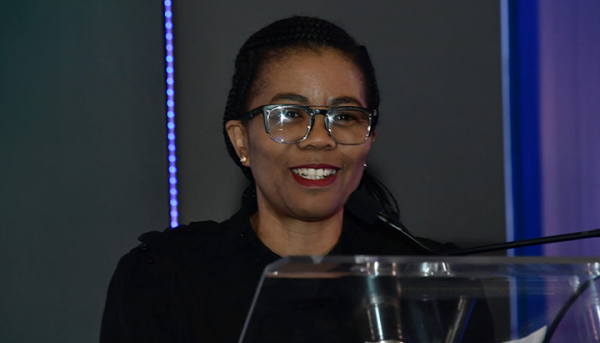News & Media
MoodleMoot Africa 2024 looks to the future of education technology
On 25 to 27 September 2024, the Unisa Information and Communication Technology (ICT) Portfolio, in collaboration with MoodleMoot Africa Association member universities, hosted a dynamic MoodleMoot Africa 2024 as part of its annual conference at the Radisson Hotel in Johannesburg, bringing together educators, technology experts, and thought leaders to improve the quality of online, e-learning education and training in a globally connected digital.

Representatives of universities partnering with the MoodleMoot Africa Association
The conference, organised in collaboration with leading universities across the African continent, celebrated the first anniversary of the MoodleMoot Africa Association.
Themed “Moodle education technology platform: uniting African universities to reclaim Africa’s intellectual futures and create sustainable African solutions”, the 2024 conference called on all Moodle Learning Management System (LMS) partners/vendors, educational technologists, learning scientists, academic and non-academic practitioners, scholars, researchers, and students who are interested in the innovation in the 4IR era to collaboratively proffer educational solutions based on their knowledge and practical use of Moodle LMS to improve the current trajectory in the continent’s adoption and adaptation of education technologies.

Mathabo Nakane-Mginqi, Unisa Vice-Principal, Information and Communication Technology and Chief Information Officer
Speaking at the conference, Mathabo Nakane-Mginqi, Unisa Vice-Principal: Information and Communication Technology and Chief Information Officer, highlighted the remarkable achievements and improvements at Unisa over the past year. “The university,” she said, “has seen a surge in applications, with over 1.5 million received, and now boasts close to 380 000 registered students. The successful implementation of the new Moodle LMS has been a game-changer, leading to a 35% saving in IT consumption and improved stability in servicing students.”
Notably, the university has also witnessed a proliferation in the use of artificial intelligence and machine learning for teaching, learning, and research purposes. “To guide this progress, Unisa is in the process of developing a policy to ensure the ethical and responsible use of these technologies,” Nakene added.

Dr Martin Dougiamas, Moodle founder
In a wide-ranging presentation, Dr Martin Dougiamas, the founder of the open-source learning management system Moodle, shared his vision for the future of education technology. “The most notable development is the introduction of a new AI subsystem in the upcoming Moodle 4.5 release,” he said. “This system allows for the integration of various AI providers, such as OpenAI and Azure, through a consistent API. This paves the way for the Moodle community to develop plugins that leverage these powerful language models, making the administration and deployment of AI features more streamlined.”
Dougiamas demonstrated several sample AI-powered plugins, including tools for text and image generation directly within the Moodle interface. He also highlighted improvements to the platform's assignment management, badges, and notification systems, all aimed at enhancing the user experience for both educators and students.
Beyond the technical updates, Dougiamas shared his broader perspective on the state of education globally. He expressed concerns about the growing focus on job-specific training at the expense of a more well-rounded education, and the potential impact this could have on democracy and sustainability. Dougiamas emphasised the critical role of education in addressing the United Nations' Sustainable Development Goals, which he believes is currently lagging behind.
Looking to the future, Dougiamas said he believes that the transformative potential of AI will have an even greater impact on education than the internet revolution. He highlighted the rapid advancements in language models, content generation, and robotics, and encouraged the audience to explore the Moodle Research Lab, where researchers and enthusiasts are collaborating on these emerging technologies.
The conference also centred around discussions focused on three key themes: integrating technical and soft skills in education to enhance critical thinking and problem-solving abilities, fostering stronger partnerships between higher education and industry through joint research, co-designed curricula, and initiatives like hackathons to provide real-world experience, and addressing ethical considerations related to digital technologies, such as data privacy and equity. Collectively, these themes emphasise the need for a holistic approach to prepare students effectively for the modern workforce.

Prof Puleng LenkaBula, Unisa Principal and Vice-Chancellor
In a thought-provoking address, Unisa Principal and Vice-Chancellor (PVC), Professor Puleng LenkaBula, urged universities to reflect on the validity of open distance learning, and their educational digital systems in the rapidly evolving AI landscape. Asking how universities can shift from the margins and become active participants in leveraging AI to enhance quality assessment processes, the PVC urged African universities to become partners in shaping the continent’s digital future rather than mere consumers of global technologies.
As the MoodleMoot Africa Association embarks on its second year, the path forward is clear: to establish a robust governance structure, secure sustainable funding, and continue leveraging the power of educational technologies to transform the lives of African youth. With the unwavering commitment of its members and the support of African Universities, the association is poised to make a lasting impact on the continent's academic landscape.
* By Rememberance Manganyi, Intern Journalist, Department of Institutional Advancement
** Photos by Shooheima Champion, Multimedia Centre
Publish date: 2024/10/01

 Unisa co-hosts G20 community outreach in the Eastern Cape
Unisa co-hosts G20 community outreach in the Eastern Cape
 Unisans gain membership of prestigious science academies
Unisans gain membership of prestigious science academies
 Advocating for disability transformation through servant leadership
Advocating for disability transformation through servant leadership
 Unisa Press continues to illuminate the publishing space
Unisa Press continues to illuminate the publishing space